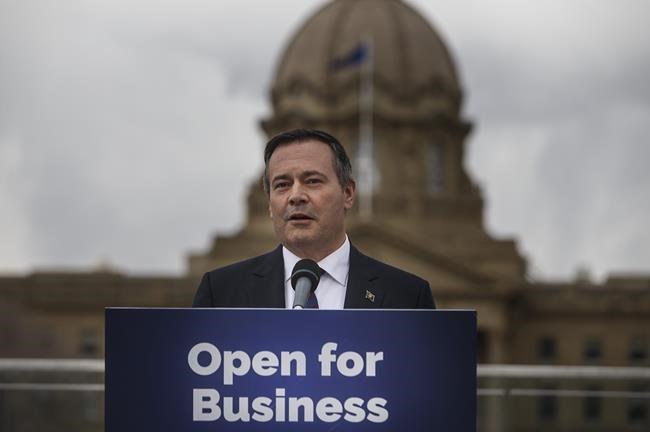 British Columbians are familiar with Alberta premier-designate Jason Kenney’s top-line promises — “turn off the taps” on B.C. if need be, eliminate Alberta’s carbon tax and generally restore the province’s right-wing outlook.
British Columbians are familiar with Alberta premier-designate Jason Kenney’s top-line promises — “turn off the taps” on B.C. if need be, eliminate Alberta’s carbon tax and generally restore the province’s right-wing outlook.
There’s a second tier of promises that B.C. could start to notice, as well. Some of the impacts stand a good chance of spilling over, given our proximity. And they’re so diametrically opposed to the B.C. NDP government’s outlook, they’ll be a source of intense interest.
The initial phase of the United Conservative Party’s agenda is heavy on revenge — against B.C., Canada, NDP thinking in general and environmental groups that have fought the oilsands for years.
Under the higher-profile issues, here are some of the ideas being hatched on the other side of the mountains that B.C. will be hearing about — and dealing with.
• A dramatic corporate income-tax cut. The Alberta NDP raised corporate income taxes to 12 per cent from 10 per cent, which is roughly in line with other provinces. The UCP is committed to annual one-point reductions over four years, which would bring it down to eight per cent, the lowest rate in Canada.
A 25 per cent tax cut brings back memories of the B.C. Liberal government’s first week in office, when it slashed personal income taxes by 25 per cent. (It’s not the only UCP idea that is reminiscent of the Gordon Campbell-era Liberals.)
It’s coupled with some vague talk about encouraging U.S. firms in the mountain corridor to move north. B.C. is just as liable to be the hunting ground.
B.C.’s rate used to be 10 per cent. The Liberals temporarily increased it to 12 per cent for two years during the economic slowdown, then returned it to 10 per cent. The NDP hiked it back to 12 per cent soon after taking office.
A 25 per cent difference in the two corporate tax rates will start to look appealing to B.C.’s very mobile tech sector in four years. Given all the political baggage, Kenney would be delighted to do the ribbon-cutting for any B.C. firms that head east.
• Alberta’s carbon-tax repeal will have major B.C. implications. It’s slated to be “Bill 1” when the new government takes over. It would open up another big tax gap between Alberta and B.C.
The national carbon-tax plan would eliminate that differential. But the UCP also plans to sue Ottawa over that national carbon tax if it’s imposed in place of the soon-to-be rescinded provincial one.
The B.C. carbon tax is on a schedule that calls for two more increases. British Columbians will be paying $50 per tonne of emissions in the next few years, while the UCP plan is to see Albertans paying zero.
As a rough guide, that’s the equivalent of about a dime a litre on gas, and a similar difference on most other fuels.
The UCP does recognize climate change and the need to cut emissions. But its plan for large emitters is less stringent than the current one.
• A portion of the natural gas to be processed through the big liquefied-natural-gas plant now under construction in B.C. is from Alberta, and the new government is keen to increase that share.
The UCP platform says gas production is curtailed just as much as oil is and it promises to help build more access to the coast.
On the same topic, B.C.’s gas-royalty rates and regulatory regime are being scrutinized by the auditor general and others, with a view toward tightening it up.
The UCP is promising one royalty rate in perpetuity and various other measures to restore oil and gas drilling to its former glory.
• The UCP says the “No. 1 reason” Alberta’s economy lags is the “foreign-funded campaign” to landlock its oil.
It formally recognized the work of Vancouver journalist Vivian Krause, who painstakingly tracks every U.S. dollar that goes to Canadian environmental causes.
Kenney promises an inquiry commission into that money, and is committing to a $30-million attack-communications plan on the “lies and myths” about Alberta energy.



